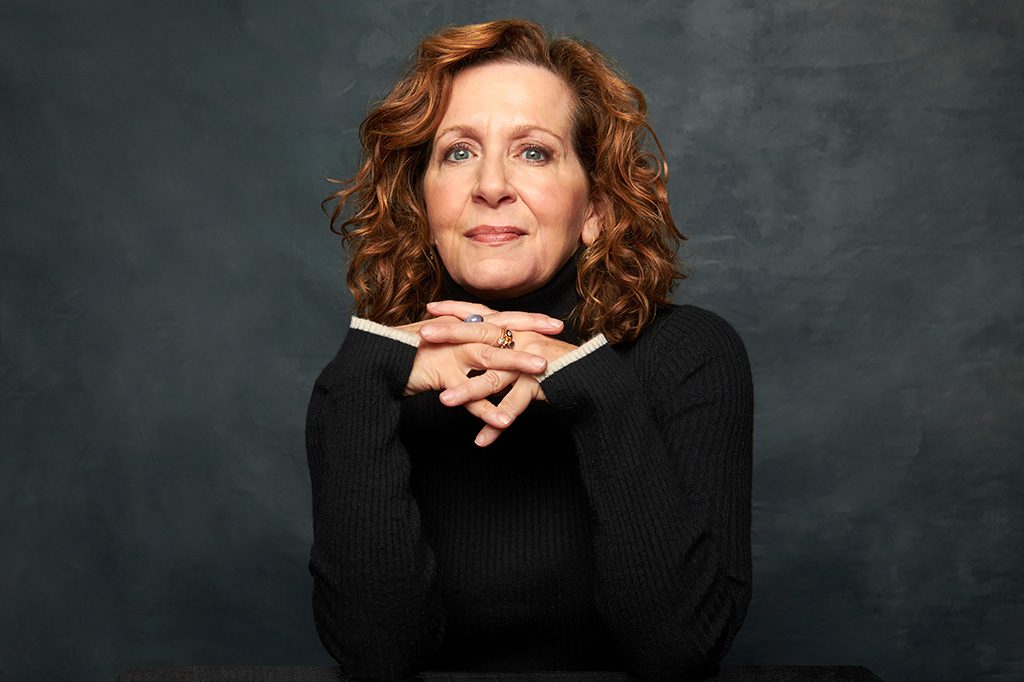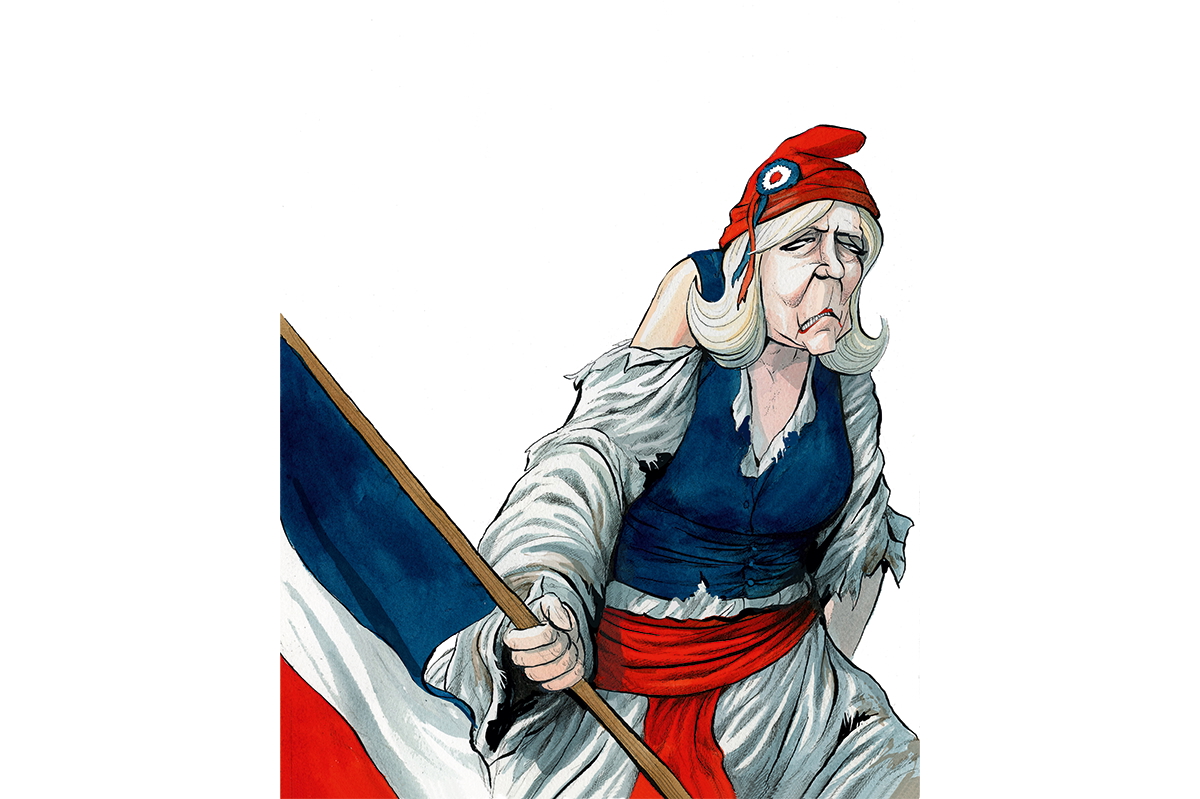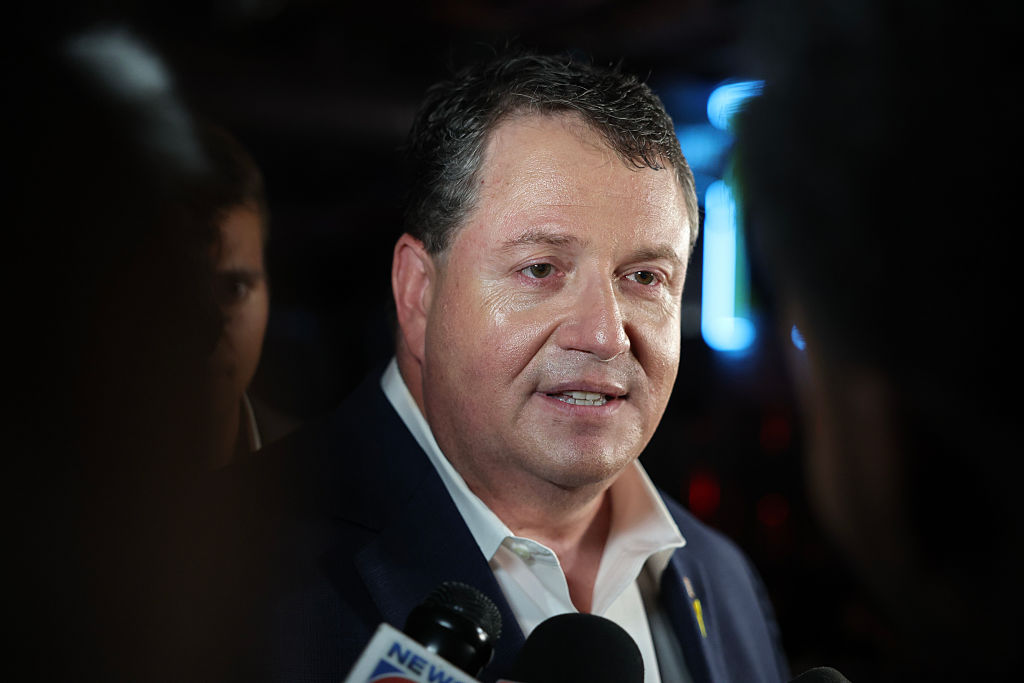For the last few years, Betsy Aidem has immersed herself in historical trauma. In 2022, the Broadway powerhouse starred in Leopoldstadt, Tom Stoppard’s Tony Award-winning play, which follows the lives of a Jewish family in Vienna in the first half of the twentieth century.
The same year, she took on a part in a similar vein: that of the feisty Marcelle in Joshua Harmon’s Prayer for the French Republic, which ended its Broadway run on March 3. The action flits between 2016 France, when antisemitism is on the rise and the far-right Front National leader Marine Le Pen is gaining traction as a presidential candidate; and the 1940s, when Marcelle’s grandparents hide from the Nazis in their Parisian apartment.
Marcelle must decide whether to stay in her home country — where her son, who wears a yarmulka, has been violently attacked twice — or to flee to Israel, where apparent safety lies.
As Aidem, sixty-six, reflects back on her most recent roles, The Spectator talks to her about life in New York, what it means to be Jewish in a time of rising intolerance and what’s next.
Clarissa Sebag-Montefiore: When did you move to New York?
Betsy Aidem: I came to New York in the summer of 1976 at age eighteen, and I never left. I thought it was exciting: there were so many venues to go and hear music, the punk scene. There was so much theatre that was affordable! My first Broadway show was $7.50.
CS-M: What was your first acting experience in the city?
BA: My off-Broadway debut was in 1981. I wore a skin-tight red sequin dress and I was playing some lounge singer from the wrong side of the tracks. I sparkled for fifteen minutes and then left.
CS-M: You were raised in Phoenix, Arizona, in a reform Jewish home by your father, an orthopedic surgeon, and your mother, a homemaker. How was religion treated?
BA: My father had been raised doing far more observant things. My mom is wonderfully agnostic, yet she loves the culture, she loves the rituals, she believes in the tzedakah aspect of Judaism, that charity is a really important part of her life.
CS-M: How have you experienced being Jewish in the world?
BA: My son went to Hebrew school and [had a] bar mitzvah. I wanted him to have a cultural identity, because I think the values of Judaism are really wonderful. I’ve passed on my mother’s sense of tzedakah: you take a percentage of what you earn and give it back to less fortunate people. I’m not observant, I don’t do Shabbos, I haven’t even been to High Holy Days for a couple of years because I’m always working. So, it’s confusing, but I don’t think that exempts me from being Jewish.
CS-M: How has your mother’s influence shaped your life?
BA: Her spiritual identity is looking at art… She said if there was such a thing as church, or temple, it’s when she walks into a museum. For me, it’s definitely the theater. I’m always moved by the endeavor to make beauty that runs through all cultures.
CS-M: In what way is the theater spiritual for you?
BA: Being able to draw from your own past, from the things you never solved, from people who are no longer here. The amount of epiphanies that hit you… the only other thing that compares to that is LSD!
CS-M: What drew you to Prayer for the French Republic?
BA: The second I read it I said, “I cannot not do this play.” The characters are so rich, the story was so important to me, because of my own heritage, and I just felt like he was very directly addressing the issue of where safe is.
CS-M: Playwright Joshua Harmon looks back to the 1940s, a decade that is significant to you personally.
BA: My family was taken in 1941 in Poland. Three villages comprising of 700 women and children and 800 men were taken in lorries to a pit built by the Russian Army for what were intended to be barracks and shot by the Germans. The local townspeople were told to cover them with dirt and were the witnesses. There is a lone marker there now.
CS-M: What are your thoughts about Harmon?
BA: He’s endless.
CS-M: In what way?
BA: He’s able to hear all the contradictions in a person, that there is a duality constantly in the human condition. He finds this hilarity in a very fearful situation. He shows flaws. The way [characters] lose and gain and triumph over certain things. Or maybe don’t.
CS-M: How does the play resonate today, with the Israel-Gaza war?
BA: That is certainly affecting everyone’s sense of safety right now. We don’t know what is going to happen. It’s hard not to feel what you’re reading or seeing might bubble into something that is an old sentiment. So that is part of it. Looking at what is going on in the world now, you have to say: what do you make of this, where is it going to go, what do you need to do?
CS-M: What reaction have you received from the audience?
BA: So many strangers stay after and we come out and they say: “Oh my God, this couldn’t be more prescient.” It is the same internal struggle of feeling either threatened or safe, or having to make choices.
CS-M: Have you ever experienced antisemitism?
BA: I feel like I’ve had a fairly benign experience of being a Jewish person in America. But in 1988, I was doing a play and somebody signed in on the call board with a swastika. And it did happen to be during High Holy Day week. I went to the stage manager and told him as well as the actors. But nothing got done and it wasn’t taken down. So, I said to the person who put the swastika on the call board “I’d like YOU to take this down…” And later, outside the theater, the friend [of this person] took a rolled-up newspaper and bashed me in the face.
CS-M: Would that be allowed to happen today?
BA: No! If that happened today there would be an inquiry. Today you would call the police and say there’s been an assault. I did shows in the Eighties where guys were grabbing you. We didn’t have the kind of HR stuff that people have now. The thing I did learn from that experience is if you want to stand up and be counted, you have to stand alone. There might not be an army behind you. You have to be willing to stand and say that’s not right.
CS-M: What effect did that have on your work?
BA: It made you tough. Because you cannot survive in show business without being tough.
CS-M: What effect did it have creatively?
BA: The whole point of acting and drama is that things that upset you are fuel to take you through a story. You need your fuel. All the wounds, all the scars that you accumulate in your life (and nobody doesn’t), you translate them into a higher meaning. You take those disappointments, you take the guilt you didn’t do well or right and you find a way to transcend it into a story you’re telling.
CS-M: What’s next?
BA: I just need some time to let this leave. I’ve spent almost four years of my life [in plays revolving around] the Holocaust. I have no idea what’s next, but I hope it’s frothy and light!


























Leave a Reply